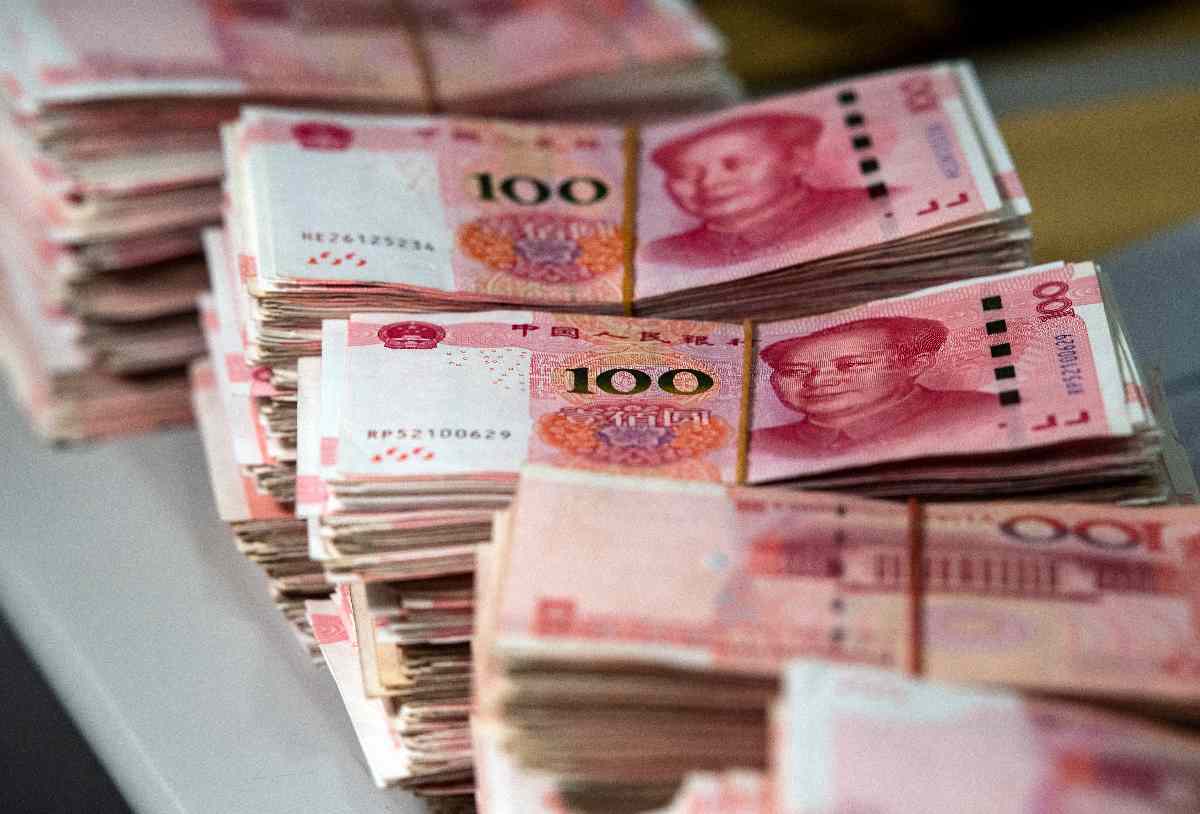China's move to devalue its currency could prove to be a double-edged sword in its escalating trade war with the United States (US), offsetting tariffs but potentially hurting Beijing's efforts to shore up its weakening economy, analysts say.
Although China's central bank governor Yi Gang insisted Monday that the country would "not engage in competitive devaluation", Washington wasted no time in formally labelling Beijing a currency manipulator when the yuan plunged below the key 7.0 per US dollar threshold.
China fired back Tuesday, with the bank saying it is "resolutely opposed" to the US designation.
The Chinese yuan, also known as the renminbi, is not freely convertible and Beijing limits its movement against the US dollar to a two percent range on either side of a central parity rate, which is set each day.
US President Donald Trump has long accused Beijing of manipulating the currency as a weaker yuan makes Chinese exports – which lie at the heart of the trade war – cheaper.
Yi said Beijing would not use depreciation "as a tool to deal with external disturbances such as trade disputes" and insisted the central bank would maintain "a stable and balanced RMB exchange rate."
But some analysts have suggested Beijing will allow the yuan to fall further.
Bo Zhuang, chief China economist at TS Lombard, said the yuan's fall was the obvious result of "active monetary policy intervention" in response to Trump's most recent tariffs threat.
It is now clear that China "is willing to tolerate further currency weakness in the face of the renewed escalation of trade tensions," Bo said.
'Severe and destabilising'
The two sides characterised last week's resurrected trade talks in Shanghai as constructive, but tensions have mounted rapidly since then, as Trump vowed to impose fresh tariffs on US$300 billion in Chinese goods from 1 September.
This would subject virtually all of the US$660 billion in annual merchandise trade between the world's two top economies to punitive duties.
Bo predicted the yuan could weaken another three percent to 7.25 in August, and possibly breach 7.5 in 2020 if the US retaliates by imposing 25 percent tariffs on all Chinese exports.
But depreciation also poses risks to China – a fact that has not escaped Beijing's policymakers.
"We don't think... (the central bank) will let the yuan wantonly weaken as a significant depreciation could have severe and destabilising effects on the domestic economy," said Stephen Innes, managing partner at VM Markets Pte Ltd Singapore.
Other analysts agree that Beijing's dislike of instability – and fears of a large capital outflow – will prevent the central bank from allowing too much dramatic movement.
"In my view, it will probably seek to prevent any rapid, volatile or major renminbi decline through the continued implementation of tight capital controls... and use other tools at its disposal," said Mark Sobel, former official for international and monetary policy at the US Treasury department.
Blaming Trump
However, the trade war could also serve Beijing's broader ideological needs.
China's economy is already slowing – growth slipped to its weakest pace in almost three decades in the second quarter – and the trade spat throws up an easy scapegoat if the situation fails to improve.
"From a political perspective, blaming Trump may now have become a viable strategy for Beijing," said Bo.
"In the event of the negative outcome of China's growth falling short of the longstanding official target... Beijing would be able to point the finger at the US as the cause of China's slowdown, instead of admitting to any wrong policy choices."
But currency movements are only one of the tools which Beijing says it could use to increase pressure on the US, including potentially even a sell-off of its US$1.1 trillion pile of US Treasuries.
"Most people didn't think they'd use the currency weapon and they've used that," Stephen Roach, a senior lecturer at Yale University said.
"So conceivably, they might consider other options, and you can't rule out the Treasuries option."
Beijing has already been trimming its Treasuries holdings, which are the smallest they have been in two years, and deepening tensions mean they could shrink further.
"China is gearing up for a long trade battle with the US", said Rodrigo Catril, senior strategist at National Australia Bank.
"Recent events suggest a US-China trade deal is unlikely... and indeed it seems reasonable to expect trade tensions to get worse before they get better," he added. - AFP
